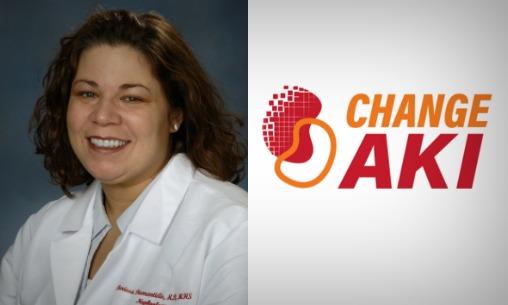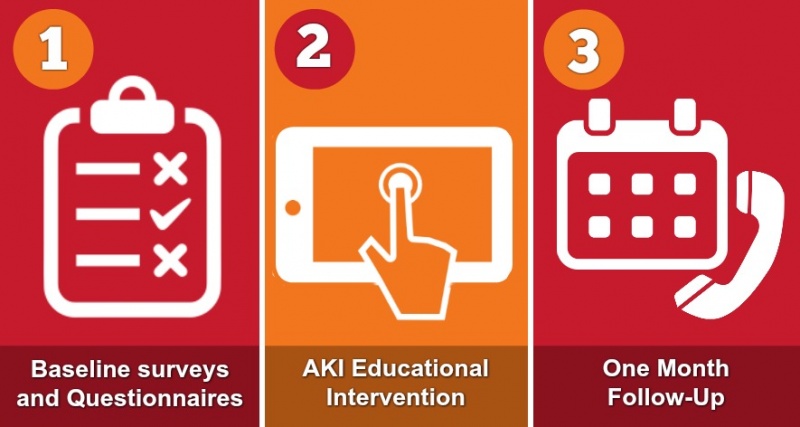
We are proud to show off some of the work Dr. Clarissa Diamantidis has been leading, including her work as principal investigator on a research study on Acute Kidney Injury (AKI), called Change AKI.
Change AKI is a pilot study evaluating the feasibility and acceptability of a patient-centered mobile health (mHealth) educational program promoting AKI awareness and reduction of contributory behaviors among hospitalized AKI survivors at Duke Medical Center. The long-term goal is to develop patient-centered educational materials to reduce AKI recurrence. The researchers hypothesize that a tailored educational curriculum will improve patient awareness of potential hazards and reduce AKI recurrence among hospital-based AKI survivors.
Project summary:
Name of Study: Understanding the role of patient behavior change in improving AKI outcomes
Study Acronym: Change AKI Study
Principal Investigator: Clarissa Jonas Diamantidis, MD, MHS
Funding Agency: Doris Duke Charitable Foundation- Fund to Retain Clinical Scientists at Duke
Project Staff:
Study Coordinators: Jennie Riley, MS and Nikita Shah
Programmer: Avi Alkon
Collaborators: Jennifer St. Clair Russell, PhD, MSEd, MCHES and Joseph Lunyera, MBChB
This study consist of three parts:
1. Baseline surveys and Questionnaires: During baseline, all patients answer questions surrounding the following subjects: (1) Demographics, (2) e-Literacy (designed to assess patient’s knowledge of technology), (3) REALM, (4) Patient Safety Behaviors, (5) AKI Self-Awareness and (6) AKI Knowledge.
2. AKI Educational Intervention: Those randomized to the intervention arm are then given an iPad to review the Change AKI program. The educational intervention includes clinical vignettes, educational programming, and pre- and post-test knowledge assessments via RedCap surrounding 2 themes related to patient safety in acute kidney injury: (1) use of non-steroidal anti-inflammatory drugs (NSAIDs) and (2) sick-day protocol (e.g. the avoidance of certain medicines when volume deplete to prevent AKI).
3. 1-Month Follow-Up: Study staff will follow-up with patients via phone one month after discharge, and cover the following subjects: (1) Patient Safety Behaviors, (2) AKI Self-Awareness, (3) AKI Knowledge and (4) Pain Scale.
Study Progress: The Change AKI Study is actively recruiting patients.